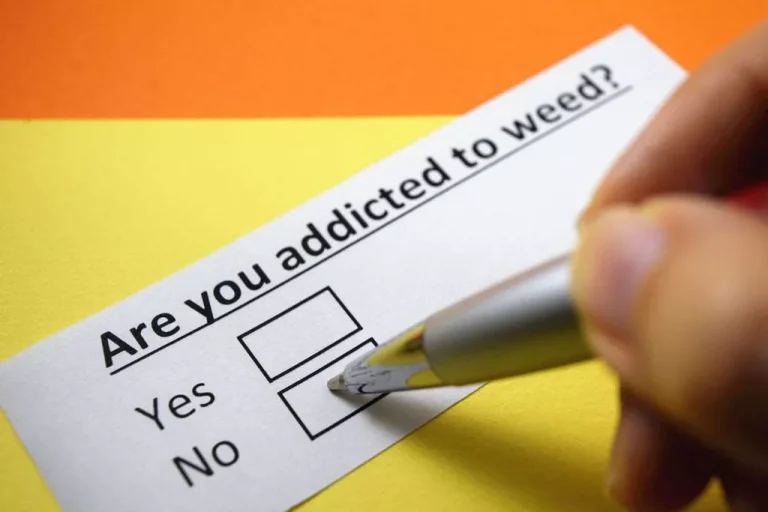
Preventing relapse and sustaining recovery demand continuous effort, support, and self-awareness. Strategies that include engaging with support networks, making lifestyle adjustments, managing stress, and seeking professional recovery help are essential components of a successful recovery plan. The journey is marked by victories and setbacks alike, each offering valuable lessons and growth opportunities. For most people with a history of alcohol abuse, one drink is not advisable. While it may be easy to tell yourself you’ll just have one drink, even a small amount of alcohol can lead you back into the cycle of addiction. That said, there are four general stages of recovery, as compiled by addiction expert Steven M. Melemis, MD.
Day in the life of a third year Warwick student

This process drinking again after sobriety may cause intense withdrawal effects initially, which usually lessen over time. However, significant alcohol cravings may last much longer and often contribute to relapse. For some individuals, complete abstinence from alcohol may not be desired or achievable for various reasons. In such cases, moderate drinking may be considered as an alternative approach. However, moderation requires strict adherence to predetermined limits on alcohol consumption and ongoing monitoring of drinking behaviors. When physical relapse happens, people in recovery from liver damage risk a recurrence of alcohol-related liver disease.
- Many in the addiction arena, however, argue that alcohol addiction is a chronic disease that never completely goes away.
- First, rather than viewing your relapse as a sign of failure, accept it as a step in your journey to sobriety that signals you need to revise your recovery approach.
- Previously, she wrote for USA Today, where she was selected to help launch the newspaper’s wellness vertical.
- This is a small list, but any of the points on it would be good signs that you may need outside intervention.
- It stands to reason that alcohol recovery is also a gradual process with no set timeline.
Health Categories to Explore
Something I didn’t expect going into frepping was that it would provide me with a rare period where I could completely stop caring about what people thought of me. The main management for severe symptoms is long-acting benzodiazepines — typically IV diazepam or IV lorazepam. Alcohol withdrawal can range from very mild symptoms to a severe form, known as delirium tremens. Of course, we all want a simple, achievable number for how long we should abstain from alcohol in order for our bodies to fully heal from its effects.

How do you detox your liver?
Shame and guilt about past alcohol use increase a person’s risk of relapse. If they relapse, these negative emotions often intensify, creating a cycle of abstinence and relapse that is difficult to break without professional help. Relapse into alcoholism is less likely if you attend rehab, dedicate yourself to a recovery plan and avoid becoming overconfident in your ability to prevent relapse. With further treatment and dedication, you can maintain sobriety. For people who have established a sustained period of sobriety, relapse doesn’t occur overnight. In a 2015 article published in the Yale Journal of Biology and Medicine, Dr. Steven Melemis described three stages that occur during relapse.
- This post-treatment phase focuses on staying sober and sustaining the achievements made during treatment.
- There’s no miracle diet by any means, but the Mediterranean diet, for example, can help fill some of the nutritional gaps you may have due to alcohol use.
Arguments for and Against Allowing Alcoholics to Drink in Moderation
Although relapse is most common in early recovery, it can happen after many years of sobriety which can be especially dangerous to older adults. As people age, they are often less prepared mentally and physically to handle alcohol effects, increasing their risk of falls, accidents, blackouts, or alcohol poisoning. Moreover, alcohol addiction itself alters brain chemistry and functioning, further compromising decision-making https://ecosoberhouse.com/article/choosing-sobriety-gifts-10-great-ideas-to-consider/ abilities. This underscores the importance of seeking support and guidance from healthcare professionals when navigating decisions about alcohol consumption post-treatment. One of the most pressing questions for individuals recovering from alcohol addiction is whether they can ever drink again.

How To Have A Difficult Conversation About Addiction With Your Loved One

Shannon Weir, RN is the Chief Nursing Officer at Gallus Medical Detox Centers. She has been a Registered Nurse for 30 years, Shannon’s experience ranges from critical care to flight nursing, medical detox, sexual assault exams, and SWAT nursing. Shannon has been with Gallus Medical Detox Centers since 2010 and is a vital part of our organization. Gallus Medical Detox Centers specialize in safe, effective medical detox. We offer the highest level of skilled care in a calm, comfortable environment.
Early Warning Signs of Relapse
The debate between abstinence and moderation as approaches to alcoholism recovery is ongoing. Abstinence, which entails complete avoidance of alcohol, is the cornerstone of many recovery programs and is considered the safest option for individuals with a history of alcohol addiction. Moderation, on the other hand, involves setting limits on alcohol consumption and attempting to drink responsibly. Relapse prevention is a pivotal component of any treatment plan for alcoholism or any other substance abuse disorder.